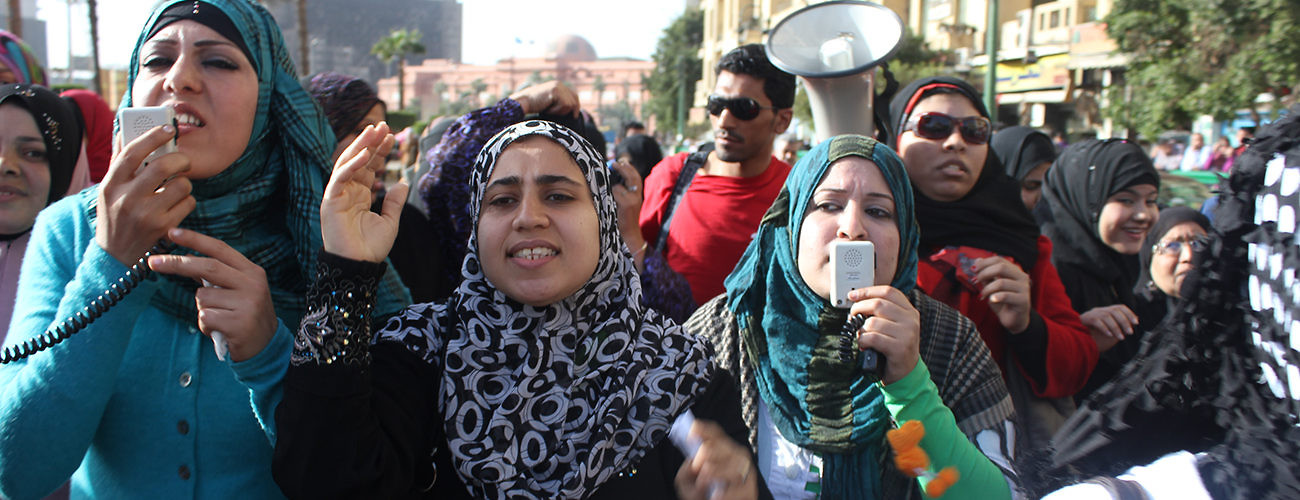Marchers on International Women’s Day, Cairo, Egypt, March 8, 2011. (Al Jazeera English)
Civil society played a pivotal role in the Arab uprisings. By reconfiguring the social contract in a region distinguished by gender inequality, these revolts brought the status of women to the fore, and equal citizenship became a central goal. Social actors were therefore particularly active in contesting the constitution-making processes that were launched.
Based on field research produced by Egyptian and Tunisian civil society activists and academics, this report analyzes the influence of civil society during the constitution-making processes in those two countries through the lens of women’s rights. These processes reflect in particular the struggle between the Islamists, the former regimes, and civil society over the identity and the future of the region.
The 2012 constitution in Egypt, the drafting of which was led by Islamists with little appetite for compromise, was far from satisfactory to civil society, though it did improve on its predecessor in some areas. Egypt’s 2014 constitution represented major progress for women’s rights, but the process itself was exclusive, paving the way for a campaign of repression of basic rights. In Tunisia, on the other hand, the constitution-making exercise has become in many ways a model to follow, demonstrating that Islamism and the Western liberal order are not necessarily incompatible and that the process of drafting a constitution may be more important than the content of the document itself.








